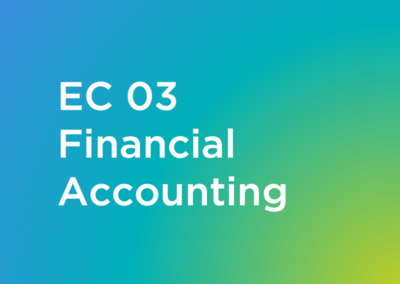About the Entrepreneurship Minor
Overview
The Entrepreneurship Minor is the most popular minor on campus. Students learn to work and think like entrepreneurs by taking the equivalent of five courses taught by award-winning entrepreneurs and investors.
What people say
“It taught me so many practical skills that I can employ. Also, it helped me realize my passion for creation and strategy that I look forward to employing in starting my own business one day.” – Nate, a 2024 ENT Minor Graduate
Requirements
You can earn the minor by taking one foundational course plus 12 additional credits, at least six of which must be comprised of core courses. The balance may comprise courses drawn from the core or elective lists.
Navigating the ENT Course Portfolio
Navigating courses by minor requirements
One way to navigate these courses is by how they fit in the minor requirements:
- Foundational Courses are the must-have requirement. You must choose one course from this list. We recommend that you take this course in your sophomore year to build a strong foundation for the rest of the ENT courses you will take.
- Core Courses cover key topics in building an entrepreneurial mindset and skillset.
- Elective Courses allow you to build your own adventure according to your interests, needs, and goals.
Navigating courses by topic
Our courses span different topics of interest. Some example topics are listed below. Use the filters in the course grid below to explore each topic.
- Entrepreneurial Exploration
- Creativity and Innovation
- Marketing and sales
- Finance and Operations
- Leadership and Management
- Product Management
- Product Development
- Communications
Required Foundation Course (Choose One)
As the learning objectives are very similar, ENT Minor candidates who take more than one Required Foundation Courses can only count one towards the minor. Any additional credits will count as general credit.
Electives

TML/ENT010 Preparing New and Aspiring Leaders

TML/ENT011 Developing Financial Literacy

TML/ENT013 Essentials of Marketing

TML/ENT014 Planning your career pathway

TML/ENT015 Living a Life of Purpose (2 credits, Second Half)

ENT090 Paths to Entrepreneurship (2 credits, Second Half)

ENT100 Creativity, Innovation & Entrepreneurial Thinking

EE185/CVS149/ENT109 Societal Aspects of Design

TML112/ENT012 Communication Skills: Vocal Arts

ENT142 Nonprofits, Philanthropy and Impact

ENT159 Art Entrepreneurship

ENT162 Bringing Products To Market

ENT163 Entrepreneurial Business Law

ENT164 Introduction to Making

ENT193.01 Building Your Entrepreneurial Toolkit

ENT193.02 Lean Software Leadership

ENT193.03 Software Prototyping Without Code (2 credits, second half)

ENT193.04 Starting A Small Business

TML/EM/ENT193.05 Introduction To Intellectual Property

TML/EM/ENT193.06 Business Essentials For Modern Times

ENT194.01 Inside the Classroom (aka Classroom Operations Officers, or COO)

ENT198 Entrepreneurial Internship

ENT199 Entrepreneurial Field Study

ENT280/NUTR280J Nutrition and Entrepreneurship (Boston Campus)

ENT/EM/TML330 Transfer Credit

BME 184 Biomedical Entrepreneurship & Strategy

EC 03 – Financial Accounting

EC 50 – Introduction to Finance

EM 153 Management of Innovation

EM 51 Engineering Management

EM 52 Technical and Managerial Communications

EM 54 Engineering Leadership

TPS 58 – Public Speaking









